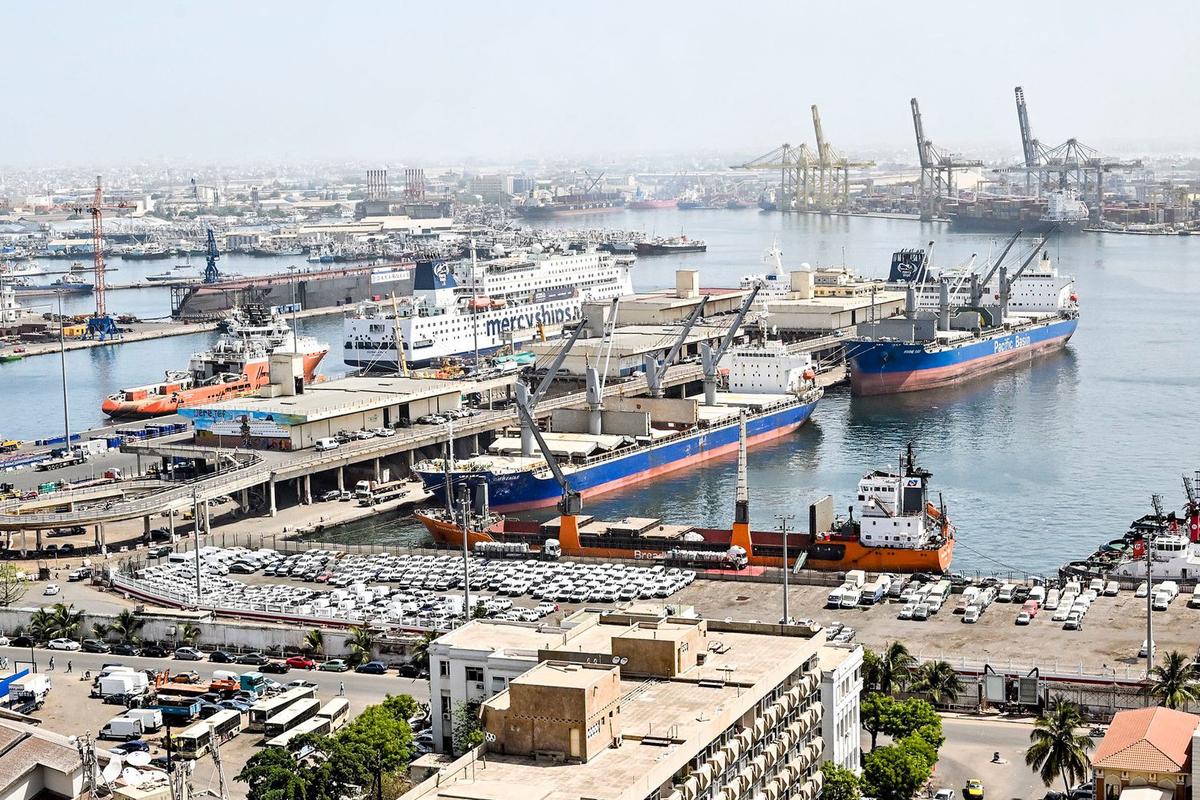
Senegal
Capacity Development
Strengthening the capacity of institutions—including central banks, finance ministries, revenue administrations, statistical agencies, and financial sector supervisory agencies—results in more effective policies and greater economic stability and inclusion. The IMF works with member countries to modernize their economic policies and strengthen such institutions by providing demand-driven, tailored technical assistance and training focused on issues that are critical to economic stability and growth.
The IMF provides CD—which includes hands-on technical assistance and training, a suite of diagnostic tools and publications, and peer-learning opportunities—so countries can build sustainable and resilient institutions. These efforts are an important contribution to countries’ progress toward the United Nations Sustainable Development Goals.
CD focuses on the IMF’s core areas of expertise, such as public finances, financial sector stability, central bank operations, macroeconomic frameworks, and economic statistics, which helps countries design better macroeconomic policies, mobilize revenue, prioritize and manage public expenditure, collect better data, and strengthen bank supervision, as well as tackle cross-cutting issues, such as income and gender inequality, corruption, climate change, and digitalization. The IMF is uniquely positioned to support its membership in these areas, with its global reach, institutional experience, and world-class expertise. All IMF members benefit from CD, but a priority is placed on support for fragile and conflict-affected countries.
Figure 2.1
IMF Spending by Main Output
FY2023

Source: IMF staff estimates.
Note: Excludes minor miscellaneous items and travel.
¹ Direct delivery only. Excludes capacity development activities related to policy, analytics, and other output areas.
At the request of country authorities, IMF country teams and technical experts develop and implement an integrated work plan tailored to countries’ needs and absorptive capacity. The IMF works with member countries through a global network of 17 regional capacity development centers, in-country placements of long-term resident advisors, short-term visits by IMF staff members and experts (in person, remotely, or a combination of both—that is, through “hybrid” visits), classroom training, and free online courses. In addition, a variety of publications provide technical information and cross-country analysis useful to country authorities.
The IMF has also supported member countries in strengthening the collection and publication of economic data to improve economic decisionmaking and boost transparency. In addition, the IMF is working on updating international statistical standards to incorporate advancements in digitalization and globalization, as well as helping find creative solutions to policy challenges—such as using digital technologies to identify and provide cash assistance to vulnerable households; protecting health, education, and social spending; reducing gender gaps; tracking specific categories of expenditure, such as climate spending; and continuing to help countries prepare for the challenges posed by climate change.
The IMF continues to increase its number of free online courses, with the participation of more than 160,000 cumulative active learners since program inception in 2013, compared with about 60,000 at the end of 2019.
IMF development partners finance more than half of the Fund’s CD work. Together, the IMF and its partners strive to help the membership build forward better and work toward a greener, smarter, and more equitable future.
To help maximize the impact of IMF CD on members’ ability to conduct effective macroeconomic management and boost their institutional resilience, the IMF regularly reviews its CD strategy. The latest review was concluded in November 2018. On December 5, 2022, the Executive Board discussed a concept note for the 2023 review of the IMF’s CD strategy. The note outlines four themes on which the 2023 CD strategy review will center: (1) enhancing the strategic and prioritization framework; (2) ensuring that the size, composition, and funding of CD is in line with the proposed framework; (3) modernizing CD delivery; and (4) assessing CD’s effectiveness and impact. The 2023 review is expected to conclude by the end of fiscal year 2024.
Figure 2.2
The IMF's Online Learning Program
Source: IMF, Institute for Capacity Development.
The IMF’s online learning program has become an increasingly important CD delivery modality, fueled by high demand from member countries.
The program has expanded substantially over the past year. Participation in online courses has continued to grow, bringing the overall number of cumulative active global learners to more than 160,000 (see figure 2.2). The IMF Institute Learning Channel offers microlearning videos in various areas of IMF expertise and has reached more than 13,500 permanent subscribers and more than 1.2 million individual views.
With more than 85 online courses available to government officials and the general public on the edX online learning platform, the curriculum continues to be enriched in key areas of global interest. New modular courses have been added to the “Virtual Training to Advance Revenue Administration” series (VITARA-HRM, VITARA-CRM) and to the “Macroeconomics of Climate Change” series (MCCx-MS, MCCx-TNZ, MCCx-EA, MCCx-CRFS, MCCx-GPF). New courses on macroeconomic statistics (EDSx, QNAx) are now available. Moreover, the program offers 34 courses in languages other than English, including the first course in Portuguese, making IMF knowledge available in six different languages.
Online training is frequently used in preparation for or in conjunction with classroom training and technical assistance, thus making blended delivery (a combination of asynchronous online learning with tailored, interactive virtual sessions) a promising CD modality. More than a dozen blended training and technical assistance engagements have taken place since the beginning of 2022, including courses in different languages (French and Russian), and several more are under development. There is a strong emerging view that blended learning is paving the way for the new model of CD delivery, and the Institute for Capacity Development remains at the forefront of these innovations.
All courses on the edX platform are available anytime, anywhere, and at no cost, which makes the program a global public good, spearheading knowledge and skills for a more sustainable and inclusive global economy.

CAPACITY DEVELOPMENT IN NUMBERS
As of April 30, 2023

for hands-on technical advice, policy-oriented training, and peer learning

courses delivered

officials trained

training languages offered

fragile states among the top 10 recipients of CD

CD visits, involving 1,694 experts
Direct Capacity Development Delivery
Figure 2.3
Capacity Development Delivery By Region
FY 2023 (percentage of total)
Sources: IMF, Capacity Development Management and Administration Program; and IMF staff calculations.
Training Participation
Figure 2.6
Training Participation By Participants' Region Of Origin
FY 2023 (number of participants)
Sources: IMF, Participant and Applicant Tracking System; and IMF staff calculations.
Note: Most of the IMF’s training falls under the Institute for Capacity Development (ICD) Training Program, which includes training coordinated by ICD and delivered by ICD and other departments at IMF headquarters and globally at the IMF’s Regional Capacity Development Centers and in programs for country officials. Training also includes IMF online courses successfully completed by country officials. In addition, training is provided by functional departments outside the ICD Training Program.
Top 10 Partners for IMF Capacity Development
(FY 2021–23, by average total of signed agreements in US dollars)
- Japan
- Switzerland
- European Commission
- Germany
- Kuwait
- Korea
- France
- Kazakhstan
- The Netherlands
- Austria
Note: Includes support for regional capacity development centers provided directly by host countries.
Top 10 Recipients of IMF Capacity Development
(FY 2023, by total spending in US dollars)
- Cambodia
- Sierra Leone
- Gambia, The
- Uzbekistan, Republic of
- Sri Lanka
- Mozambique, Republic of
- Vietnam
- Mongolia
- Congo, Democratic Republic of the
- Guinea
Sources: IMF, Capacity Development Management and Administration Program; and IMF staff calculations.
Top 10 Recipients of Training
(FY 2023, by participant weeks)
- India
- Kenya
- China
- Zimbabwe
- Bangladesh
- Indonesia
- Cambodia
- Cameroon
- Philippines
- Ghana
Sources: Capacity Development Management and Administration Program
Table 2.4
Thematic and Country Funds for IMF Capacity Development
Table 2.5
IMF Regional Capacity Development Centers

Read Next
Celebrating 25 Years of the IMF Regional Office for Asia and the Pacific